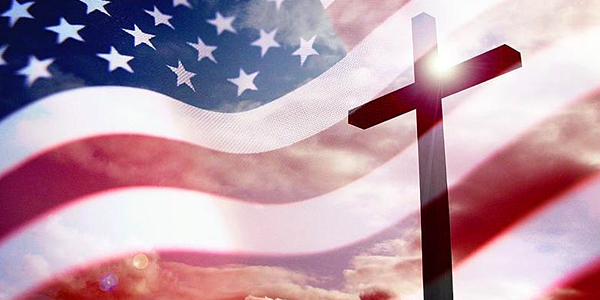
September 6, 2020; Ezekiel 33: 7-9; 23rd Sunday in Ordinary Time
The prophet Ezekiel receives a difficult command from God in today’s first reading. God calls him to speak out against what is wrong, to speak out for what is right. Ezekiel cannot remain silent. If he does, God will hold him responsible. The difficult command of Ezekiel also applies to us because we, as Catholics, are required to speak out about the moral issues of our day. We are expected to use our influence to move the world a step closer to conforming to God’s will. This responsibility has special significant this year as we prepare for the November election. In a democracy, voting is a moral responsibility. It is our way of speaking out as God commanded Ezekiel to do. We clearly have a moral responsibility to vote, but how to vote is not as easy to determine.
In an ideal world, we would vote for the candidate whose positions conform to the moral teachings of our church. But there is no candidate on the ballot this fall who conforms to Catholic moral teaching adequately. It is for this reason that the United States bishops have issued a document called Forming Consciences for Faithful Citizenship. You can find it on their website [https://www.usccb.org]. In this document, they do not mention or endorse any particular candidate. What they call Catholics to do is to enter into a formation of conscience regarding the upcoming election. They ask us to form our consciences in a way that conforms to God’s truth.
The bishops go through a wide range of moral issues that we should consider as we prepare to vote. The life issues top the list. Abortion and euthanasia are singled out as prime examples of evil because they directly attack innocent life. But other life issues also need to be considered: racism, treating the poor as expendable; redefining marriage; supporting capital punishment. Along with these issues, there are goods that the U.S. bishops place before us that candidates hopefully endorse: the support of religious freedom, adequate access to healthcare, respect for the right to immigrate, caring for our planet by opposing global warming. Now, when you look at this list of moral issues, it is clear that we have no candidates that adequately represent all of Catholic teaching. Anyone who tells you that there is a “Catholic candidate” is making a claim with which the U.S. bishops would not agree. What we are called to do is to form our consciences in a way that prepares us for responsible voting. This includes surveying the issues, considering the character of the candidates, judging his or her integrity or the lack of it, and determining whether a candidate really has influence over the issues of concern.
Since all the candidates are in some way compromised, it becomes likely that you and I will end up having to vote for a candidate who is less flawed, less likely to do harm. The U.S. bishops see this as a real possibility. In their document, Faithful Citizenship, Section 1; par. 36: they state: a Catholic “may decide to vote for the candidate deemed less likely to advance such a morally flawed position and more likely to pursue other authentic human goods.” That is quite a sentence, so let me repeat it. A Catholic “may decide to vote for the candidate deemed less likely to advance such a morally flawed position and more likely to pursue other authentic human goods.”
So you can see that you and I have a difficult responsibility this fall. But it is a responsibility nevertheless. Like Ezekiel, we are called to speak out against what is wrong and for what is right. That is why all of us should set aside some time in the next couple of weeks to reflect upon accurate information on the candidates and their policies and spend time in prayer reflecting upon how we will vote. Our ultimate choice may not be perfect. But we have confidence that God will accept our best effort to vote responsibly, an effort that strives to move our country closer to the kingdom of God.
